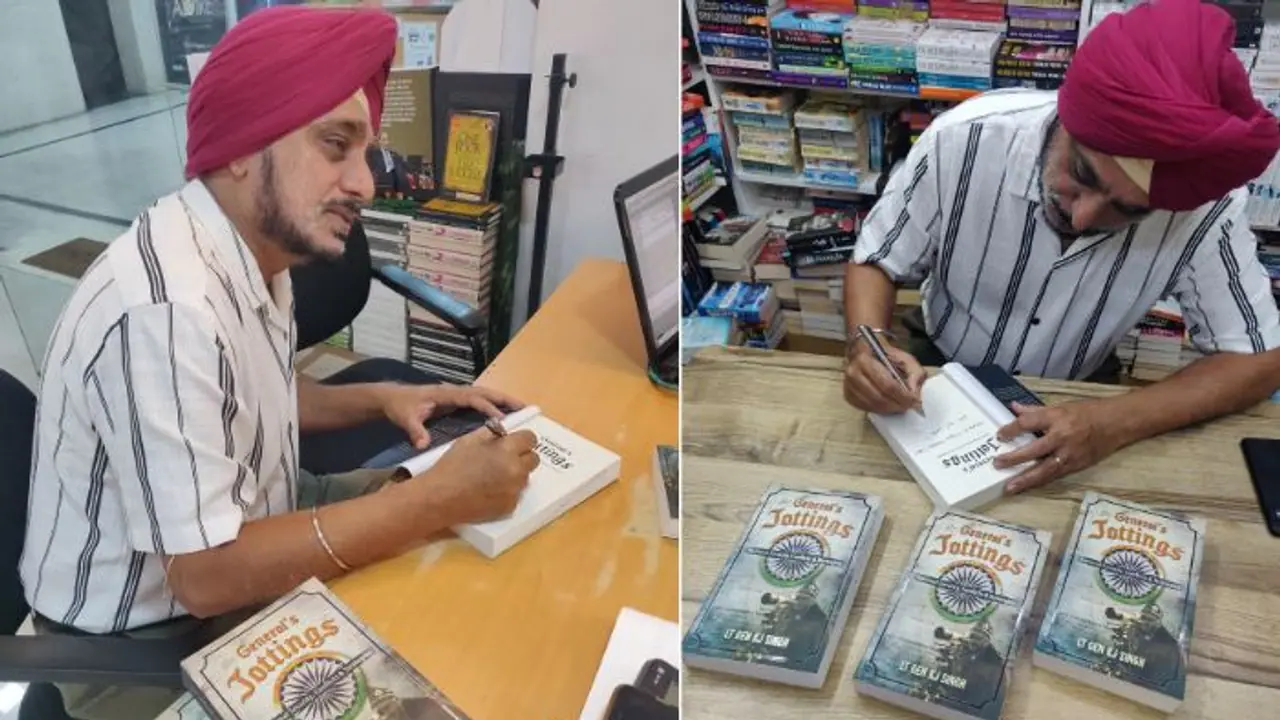Lt Gen KJ Singh (Retd) warns of a global shift towards a "clash of corridors" with the Belt and Road Initiative (BRI) and IMEC. In his book, he highlights emerging military challenges, geopolitical tensions, and the need for nations to build resilience and long-term conflict strategies.
New Delhi: Amid deepening global divide in the shadow of regional conflicts, Lt Gen KJ Singh (Retd) has warned that the world is moving towards a clash of corridors. With Donald Trump on course to assume the presidency in the US and China bracing for a renewed trade rivalry, the Belt and Road Initiative (BRI) and Indian-Middle East-Europe Corridor (IMEC) are gaining the attention of strategic experts as pivots for geostrategic focus.

“Geo-economics is being leveraged through sanctions, especially in energy security. It also appears that between BRI and IMEC, the world is moving literally towards a clash of corridors,” noted Singh in his new book ‘General’s Jottings: National Security, Conflicts, and Strategies’, published by The Browser.
Singh was the General Commanding-in-chief of the Western Command. In his book, the former Indian Army officer has taken stock of the emerging military challenges with an Indian perspective.
“Uncertain future power play is acquiring non-kinetic dimensions and a grey zone character like the coercive stand-offs in Ladakh and Taiwan (South China Sea). Even in the kinetic genre, conflicts are festering and, instead of finding resolution, are degenerating into insurgencies,” added Singh.
The military veteran also stressed that “conflict is proliferating into newer domains like cyber, space, cognitive, and autonomous platforms”.
“Geo-economics is being leveraged through sanctions, especially in energy security. It also appears that between BRI and IMEC, the world is moving literally towards a clash of corridors,” underlined Singh.
In the backdrop of the Russia-Ukraine War, the military veteran took note of Moscow coming unscathed of the Western sanctions. “Alliances are unable to ensure deterrence. Hence, nations have to build integral capabilities and smart partnerships,” added Singh.
China has pivoted BRI as its strategic outreach across continents in recent years. IMEC was unveiled on the sidelines of the G20 Summit in New Delhi with India, the US, and the UAE as movers of the ambitious trade corridor.
Singh expressed concerns at the deepening global divide along with dominating polls amid the weakening of the United Nations. “The most worrying trend is that the United Nations Organisation (UNO) and other dispute-resolving bodies have been rendered ineffective. The key challenge is not only to discern and map emerging trends but to stay ahead of disruptive trends,” added Singh.
He also asserted that “nations must build survivability, resilience, and redundancies in their response mechanisms, infrastructure, manufacturing ecosystems, and supply chains”.
“India, notwithstanding, her professed themes of non-alignment, peaceful co-existence, based on non-aggression has been at the receiving end of multiple wars and festering conflicts. These wars have left unresolved borders in the shape of Line of Control (LoC) and Actual Ground Position Line (AGPL) with Pakistan and Line of Actual Control (LAC) with China,” underlined Singh in the book.
The author took grim views of China and Pakistan “operating in collusion”.
“Pakistan has gifted a large tract of territory in Shaksgam Valley to China. India has also faced insurgencies and separatist movements in the hinterland (Left Wing Extremism) and in the border states of Northeast, Punjab and J&K. These have been aided and abetted by Pakistan and China, giving them proxy war character,” added Singh.
The military commander argued that “the focus has shifted to counterterrorism with conventional war as an unlikely possibility, which is now being reviewed or more balanced approach. Capacities are being ramped up to face longer conflicts instead of the previous template of short and swift wars of 10-14 days duration.”
